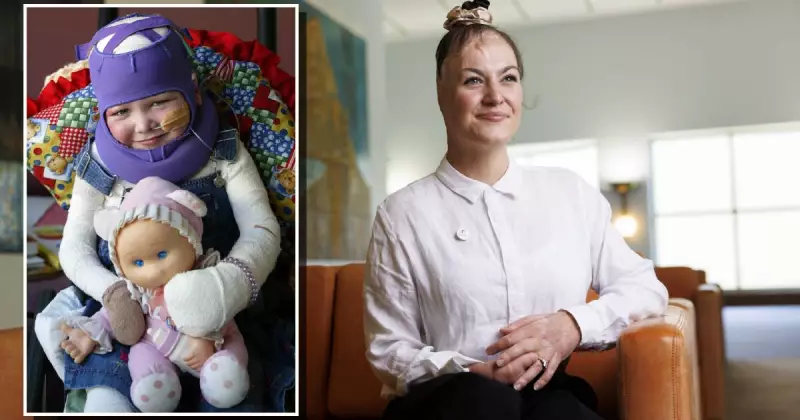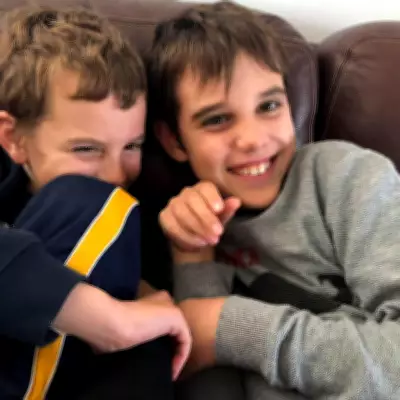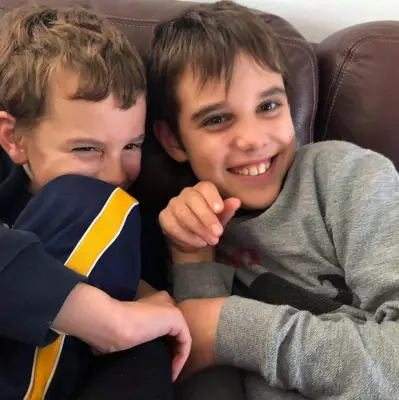
Sophie Delezio, the Australian woman who captured the nation's heart as a child survivor of two horrific accidents, has shared her powerful journey into motherhood while advocating for perinatal mental health awareness.
From childhood trauma to motherhood
Sophie Delezio's story of survival began when she was just two-and-a-half years old. In 2003, an elderly driver suffered a seizure and crashed into her Sydney daycare centre, with the vehicle landing directly on her and catching fire. The accident left Sophie with third-degree burns covering 90 per cent of her body, resulting in the loss of both legs below the knee, her right hand, and her right ear.
Just three years later in 2006, when Sophie was five years old, tragedy struck again. A driver temporarily blinded by the sun struck her stroller while she was being pushed across a pedestrian crossing. She was thrown 18 metres into the air, suffering internal injuries, a lifelong brain injury, and the permanent loss of her sense of smell.
Confronting fears in the delivery room
Now 24 and married to Joseph with their nearly 15-month-old son Frankie, Sophie recently spoke as the keynote speaker for Perinatal Mental Health Week at Parliament House in Canberra. The event highlights the struggles many parents face with depression and anxiety during pregnancy and the first year after birth.
Having endured hundreds of surgeries throughout her life, Sophie revealed she had developed a significant fear of operating rooms. "PTSD, to me, comes out in mysterious ways. It's not like what you see on television. For me, it was facing an operating theatre," she told the audience.
Despite hoping to avoid a cesarean section, Sophie ultimately required the procedure. Her medical team, aware of her fears, provided gentle support throughout the experience. "So with a rush of adrenaline and some Taylor Swift song playing in the background, my son was born in my most hated space in the world," she shared. "But with the love and care and kindness of this medical team around me and my beautiful husband, it was manageable."
The realities of parenthood and mental health
Sophie described parenthood as "messy and beautiful and unpredictable" - a reflection of life itself. "When people ask if becoming a parent is what I expected? No. You have no control of how your child's going to come, when they're going to come, what they're going to be like, how they're going to sleep. That is parenthood to a 'T' but that is also life," she said.
The young mother emphasized the importance of accepting uncertainty and seeking support. "It's OK to be overwhelmed and confused and not understand a single thing but to feel this immense mix of relief, fear, exhaustion, wonder and overwhelming love all at once. It's OK to take it one hour at a time."
Sophie has practiced this honest approach to motherhood publicly, sharing her struggles when Frankie was eight months old and not sleeping well. Rather than facing judgment as she feared, she discovered a community of supportive mothers who related to her experience.
The Perinatal Mental Health Week event also highlighted the establishment of new mental health support services across Australia. The federal government and Gidget Foundation Australia are opening a new perinatal mental health centre in Tuggeranong, scheduled to begin operations by 2026.
Gidget Foundation CEO Arabella Gibson emphasized the importance of stories like Sophie's in helping new parents understand they're not alone. "Once we start to open that conversation and to build that village of support around us, that's really critical," Ms Gibson said.
The foundation notes that perinatal depression and anxiety affects approximately 100,000 Australians each year. The new centre will provide free, personalized mental health support to local parents who obtain a referral from their GP and a mental health care plan.





